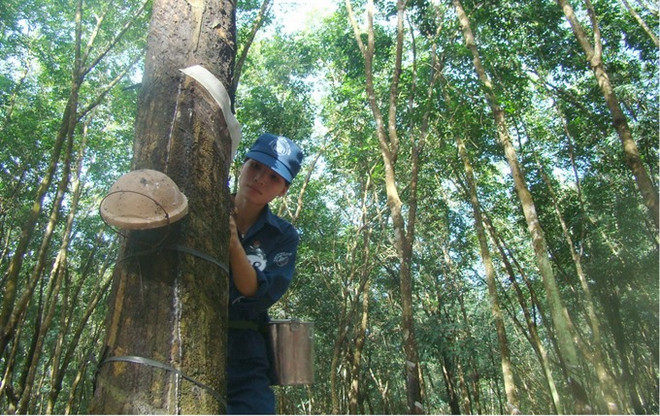VRG must also ensure it makes available itsinitial public offering (IPO) during the first quarter of 2017, Tuan said,adding that he would submit a report for the Government to review VRG’sdivestment from member companies, to assure the divestment is carried outefficiently.
Most of the VRG’s rubber producers are locatedin remote and disadvantaged areas where living conditions are poor, therefore,the divestment must assure local people are cared for and the land is managedeffectively, according to Tuan.
Tuan was responding to the VRG’s proposal, sentto the Steering Committee for Business Renovation and Development under theMinistry of Agriculture and Rural Development, to extend the deadline for theequitisation of the group by three months.
The proposal is aimed at avoiding there-evaluation of the group’s value in case the equitisation cannot be completedby the end of June 2017. If the proposal is approved, the VRG would have tocomplete the equitisation of the parent and member companies by the end of thethird quarter this year, instead of the initially approved deadline that is forthe end of June 2017.
According to Tran Thoai, Deputy General Directorof VRG, the group has completed all necessary parts of the equitisation plan,however, it would take the group more time to resolve unexpected problems thatmay occur when they try to match its work with the requirements stated inDecree 59/2011/NĐ-CP on transforming a 100-percent State-funded businessto a joint stock company.
VRG also proposed that the steering committeeallow the group to sell the stakes in its member companies after the groupcompletes equitisation so that the divestment could be completed moreefficiently, and allow VRG to seek potential buyers for its subsidiaries inCambodia.
"The Enterprise Law 2014 states that aState-owned group and its member companies cannot share ownership in the samebusiness, so VRG will have to complete divestment before July 1,2017," Thoai said.
VRG owns most of the capital in its memberrubber companies, therefore, the group will sell its stakes in those companiesto recover its investment. But if the divestment starts now, it would bedifficult for VRG to look for buyers, and the divestment could be handled moreefficiently.
Thoai said that most of those companies startedin 2007 and their products had just been introduced into the market. In thefirst three years of operation, rubber producers often have low margins ofprofit, given that the rubber price remains very low in global trading.
Further, it would become a sensitive topic forthe group to divest from member firms in Cambodia, because the group is uncertainabout who could be buyers, while the local public and media might misunderstandthe purposes of the divestment.
According to the decision of the Prime Minister,VRG will have to equitise the group and 20 member companies. In 2016, therubber group successfully sold stakes in two subsidiaries, the Tan Bien and BaRia limited companies. The group has completed evaluating its own value, aswell as that of its member companies, and is preparing reports for the steeringcommittee to approve.
On December 31, 2016, VRG sold its stakes in 24non-administrative units and collected more than 2.9 trillion VND (128.9million USD).-VNA





























